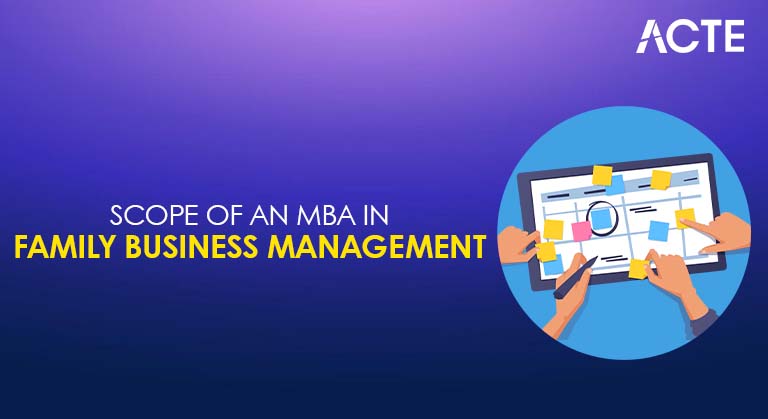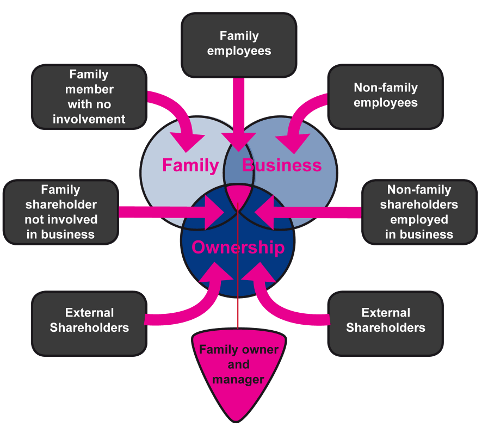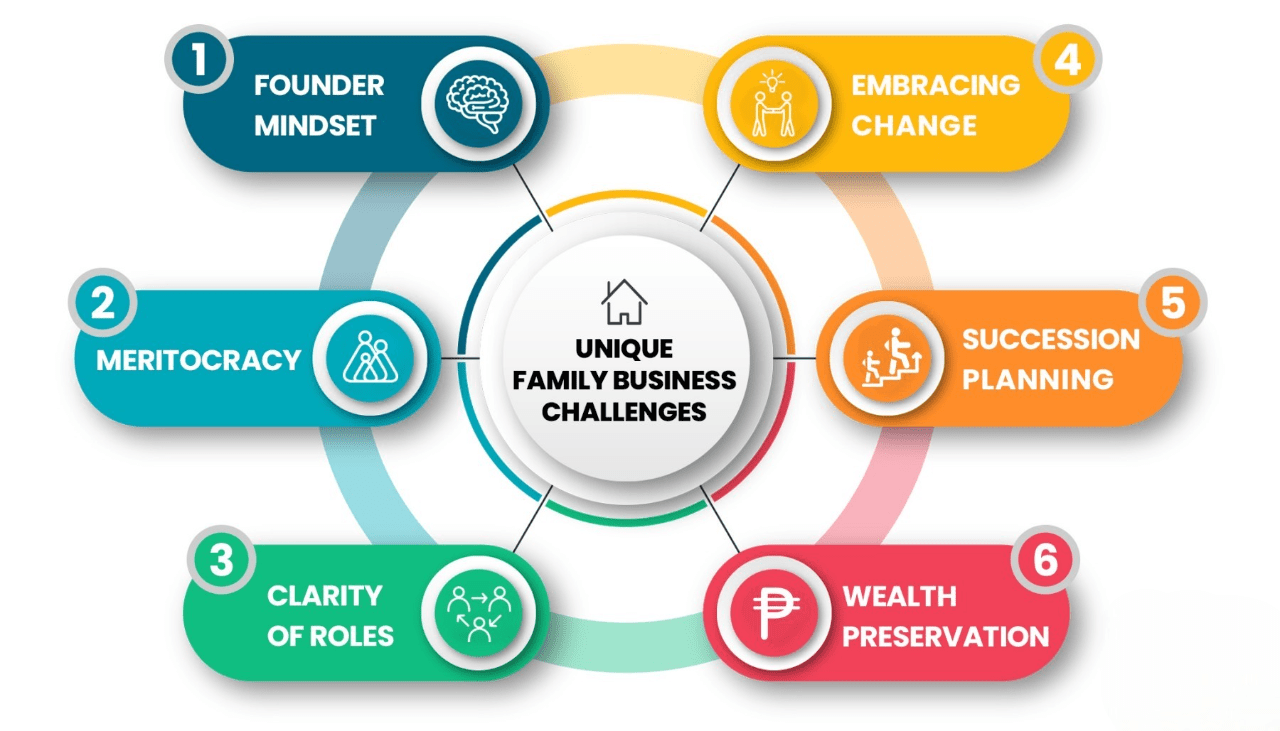
- What is an MBA in Family Business
- Importance of Family Business Management
- Curriculum Overview
- Skills Developed During the Course
- Top Colleges Offering an MBA in Family Business
- Admission Requirements
- Career Opportunities After the Program
- Challenges in Family Business Management
What is an MBA in Family Business
An MBA in Family Business is a specialized management program designed to equip individuals especially those involved in or gearing up to join their family owned enterprises with the skills, knowledge, and strategic mindset needed to sustain and grow such businesses across generations. Unlike a traditional MBA, this program dives into the unique dynamics of family-run firms, covering succession planning, governance, conflict resolution, innovation, and legacy building. It blends core business areas like finance, marketing, operations, and leadership with focused modules tailored to real family business scenarios, emphasizing values, ethics, and long-term vision. Many participants also explore complementary credentials such as PMP Training to strengthen their project management capabilities and bring more structure into their growing enterprises. Most learners come from entrepreneurial backgrounds and want to professionalize and expand their ventures while preserving their heritage. Programs often promote peer learning through interactions with other family business leaders and alumni. With family owned companies becoming major global economic drivers, this MBA gives future successors a strong edge helping them manage generational transitions, close experience gaps, and craft sustainable strategies. Ultimately, an MBA in Family Business nurtures both professional maturity and personal responsibility, preparing graduates to innovate, lead confidently, and carry their business legacy forward with resilience.
To Explore PMP in Depth, Check Out Our Comprehensive PMP Certification Training To Gain Insights From Our Experts!
Importance of Family Business Management
- Succession Planning: It helps prepare the next generation for leadership roles, ensuring a smooth and strategic transfer of ownership and responsibilities.
- Conflict Resolution: Structured management practices reduce the risk of internal disputes by clearly defining roles, responsibilities, and decision-making processes.
- Sustainability and Growth: Family business management focuses on long-term goals, enabling businesses to innovate and expand without compromising core values.
Family Business Management is crucial for ensuring the long-term success, sustainability, and harmony of family owned enterprises. With a large share of global businesses being family run, effective management becomes essential not only for profitability but also for preserving the legacy, values, and unity of the family. It also exposes leaders to broader business concepts such as an Overview of Retail Management helping them understand modern market dynamics, consumer behavior, and operational efficiency, all of which play a huge role in competitive industries. Here are six key reasons why Family Business Management is important:

- Governance and Structure: It establishes formal governance mechanisms, such as family councils and boards, which help in balancing family and business interests.
- Preservation of Legacy and Values: It helps instill the founding principles and cultural identity across generations, maintaining a unique brand and business philosophy.
- Professionalization: Introducing professional standards and practices enhances credibility, attracts talent, and increases competitiveness in the market.
Curriculum Overview
The curriculum of an MBA in Family Business is thoughtfully crafted to blend core business fundamentals with specialized courses tailored to the unique dynamics of family-owned enterprises. It typically includes foundational subjects such as finance, marketing, operations, human resources, and strategic management to build a strong managerial base. Alongside these essentials, the program features focused modules on family business governance, succession planning, conflict resolution, entrepreneurship, innovation, and leadership in multigenerational enterprises. Students also gain exposure to broader managerial pathways, with many exploring options to Pursue an MBA in Project Management as a complementary route to strengthen their ability to manage structured initiatives within family-run firms. The curriculum helps learners navigate the challenge of balancing family values with professional management, handle generational shifts, and make strategic decisions that align with both long-term goals and family expectations. Case studies, real-world projects, and interactions with industry experts add practical depth and experiential learning. Many programs further include workshops, mentoring sessions with family business specialists, and international exposure to widen perspectives. Personal development and communication skills are also emphasized to prepare students for effective leadership roles within their family enterprises. Collaboration with peers from similar backgrounds fosters rich discussions and shared insights. Overall, the MBA in Family Business curriculum equips students with the mindset, tools, and confidence to manage, grow, and sustain family enterprises across generations in a rapidly evolving global landscape.
Skills Developed During the Course
- Strategic Decision-Making: Students learn to analyze complex business scenarios and make informed decisions that align with both family values and business goals.
- Leadership and Team Management: The program nurtures leadership qualities essential for guiding teams, managing generational diversity, and inspiring innovation within the family business.
- Succession and Transition Planning: Students gain insights into preparing for and managing leadership transitions, ensuring continuity and stability across generations.
- Conflict Management: The course teaches effective strategies to navigate and resolve internal conflicts, maintaining harmony within the family and business while also strengthening Financial Management Skills for growth ensuring the enterprise scales sustainably and confidently.
- Financial and Operational Acumen: Participants develop strong analytical skills in budgeting, financial planning, and operations management tailored to the needs of family-run businesses.
- Communication and Negotiation: Emphasis is placed on enhancing communication skills to facilitate clear dialogue among stakeholders and strengthen business relationships.
- Bachelor’s Degree: A recognized undergraduate degree in any discipline is typically mandatory, with a minimum aggregate score as specified by the institution.
- Work Experience: While not always compulsory, many programs prefer candidates with prior involvement in their family business or relevant industry experience.
- Business Plan or Statement of Purpose: Applicants may be asked to submit a detailed business plan or SOP outlining their role in the family business and future goals.
An MBA in Family Business equips students with a diverse set of skills tailored to the unique needs of managing and growing family-owned enterprises. The course not only strengthens core business competencies but also focuses on interpersonal, leadership, and strategic thinking abilities crucial for long-term success in family firms. Here are six key skills developed during the course:
Are You Considering Pursuing a Master’s Degree in PMP? Enroll in the PMP Masters Program Training Course Today!
Top Colleges Offering an MBA in Family Business
Pursuing an MBA in Family Business is a smart move for anyone looking to lead or transform their family-owned enterprise with modern business acumen and strategic clarity. Several top colleges around the world offer specialized MBA programs crafted specifically for family business leadership. In India, SP Jain Institute of Management and Research (SPJIMR) shines with its Post Graduate Program in Family Managed Business (PGP-FMB), built to guide next-gen entrepreneurs. NMIMS also offers a well-regarded MBA (Entrepreneurship & Family Business), blending academic rigor with practical exposure to real-world family enterprise management. Globally, the Kellogg School of Management (USA) and IE Business School (Spain) provide advanced MBA programs that integrate family business-focused modules into their curriculum. Even the Indian School of Business (ISB) delivers targeted Executive Education options for owners of family-run firms. Many students enhance their managerial capability with complementary certifications like PMP training which helps them implement structured project management practices within their expanding businesses. These institutions not only sharpen financial, strategic, and leadership skills but also tackle succession planning, governance, and innovation challenges that are unique to family-owned ventures. With strong experiential learning, expert mentorship, and powerful networking opportunities, these programs are designed to ensure sustainable growth while preparing future leaders to steer family enterprises confidently through both traditional and modern business landscapes.

Admission Requirements
Gaining admission into an MBA program in Family Business requires candidates to meet specific academic and professional criteria. These programs are designed for individuals involved in or planning to join their family enterprises, and they assess both leadership potential and business acumen.
- Personal Interview: A one-on-one or panel interview is often conducted to evaluate the applicant’s clarity of purpose, motivation, and leadership qualities.
- Letters of Recommendation: Some institutions may require recommendation letters from business associates, mentors, or academic supervisors familiar with the candidate’s potential.
- Entrance Exams: Depending on the institute, exams like the GMAT, NMAT, or institution-specific tests may be required, though some programs waive these for family business backgrounds.
Are You Interested in Learning More About PMP? Sign Up For Our PMP Certification Training Today!
Career Opportunities After the Program
Graduates of an MBA in Family Business unlock a wide array of career opportunities, primarily centered around leading and transforming their family enterprises with strategic and innovative approaches. Equipped with enhanced managerial, financial, and leadership skills, they are well-prepared to take on senior roles within their businesses, driving growth, expansion, and modernization. Many also deepen their decision-making abilities by Understanding Scope of Management Accounting which helps them analyze costs, forecast performance, and optimize resources within family-run operations. Alumni often introduce new business models, diversify into fresh markets, or adopt professional management structures to ensure long-term sustainability. Beyond their own ventures, some choose to launch independent startups, leveraging their entrepreneurial training and strong networks. Others pursue advisory or consultancy roles, offering guidance to other family-owned businesses or collaborating with venture capital and private equity firms focused on family enterprise investments. Leadership roles in industry associations, business chambers, and family office management are also common paths. For those inclined toward academia or thought leadership, teaching, research, and participating in family business forums become meaningful avenues. Overall, the program opens doors to dynamic leadership positions, empowering graduates not only to preserve legacy businesses but also to reshape them for modern challenges and global competitiveness.
Are You Preparing for PMP Jobs? Check Out ACTE’s Project Management Interview Questions & Answer to Boost Your Preparation!
Challenges in Family Business Management
Managing a family business comes with unique challenges that go far beyond typical corporate management issues, mixing emotional dynamics with business decisions. One of the biggest hurdles is succession planning, where selecting and preparing the next leader can spark internal conflict, especially when multiple family members are vying for influence. Maintaining professionalism in a family environment is tricky too, since personal relationships can easily cloud objective decision making. Generational differences in vision, values, and risk appetite often lead to disagreements about strategy and innovation. Conflict management becomes a must have skill, as unresolved disputes can damage both business performance and family harmony. Many family-run firms also operate without formal governance structures, lacking clear roles, policies, or accountability systems a setup that slows growth and breeds confusion. Resistance to change, especially from older generations, can hold back adaptation to market trends and new technologies. To handle these complexities, leaders increasingly rely on structured approaches, and many even pursue PMP training to strengthen their project management skills and bring discipline into family operations. Balancing business goals with family expectations requires strong leadership, transparent communication, and professional management practices. Navigating all this is essential for long term success and preserving generational legacy, making education and outside advisory support incredibly valuable for overcoming these challenges.

